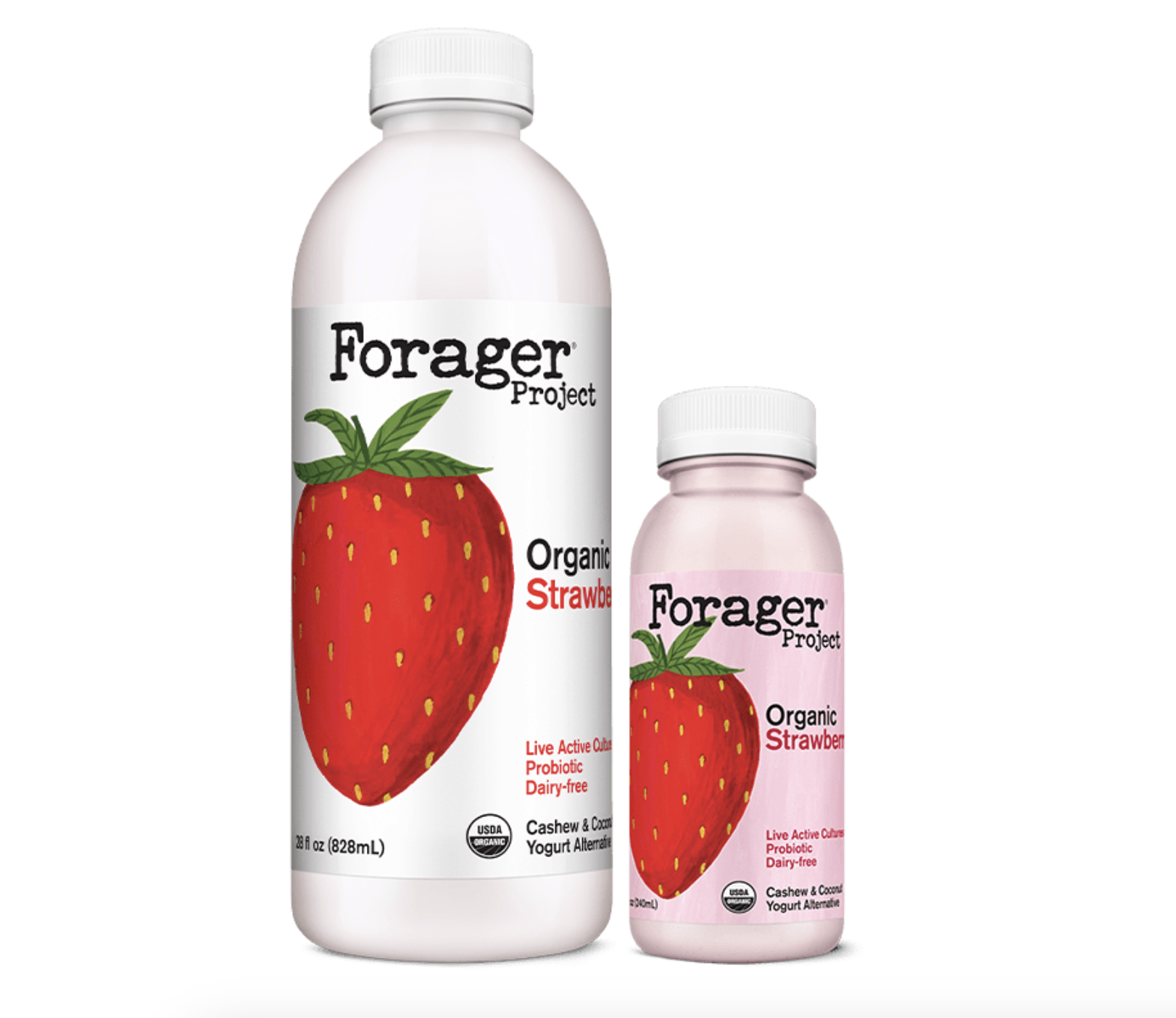Peyton’s Corner
Hi, I’m Peyton! I am sixteen years old and live near Nashville, Tennessee. I love soccer, snow skiing, playing piano, reading, and my family. I was diagnosed with Alpha-Gal Syndrome in August 2022, and I met Debbie and Candice in early 2024 through the Food Allergy Mentorship program (which I highly recommend!) that I did with my mom, who also has AGS. They were kind enough to let me work with them to share my story, ideas, and tips with you all. I am very aware of the fact that living with a severe allergy as a teen can bring unique challenges and I want to be able to highlight those AND be able to give some guidance and encouragement! This page is a place where I hope that you all can find ideas, inspiration, and solidarity while living with AGS, another allergy, or any life-changing diagnosis!
Celebrating St. Patrick’s Day Without Getting Pinched By AGS
Here are some tips for celebrating this Irish holiday from a delicious Irish stew to green t-shirts to spread Alpha-Gal awareness!
Alpha-Gal Free Irish Stew (adapted from RecipeTin Eats)
Ingredients:
2 tbsp olive oil
2.5 lb / 1.25 kg emu or ostrich rump roast (no bone)
3/4 tsp each salt and black pepper
3 garlic cloves , minced
2 onions , chopped (brown, white or yellow)
6 oz / 180g duck fat
3 tbsp flour (all purpose/plain, omit for GF)
440ml / 14.9 oz vegan stout (be sure to check for agar/carrageenan in vegan beers!)
4 tbsp tomato paste
3 cups (750 ml) chicken stock/broth
3 carrots , peeled and cut into 1.25 cm / 1/2″ thick pieces
2 large celery stalks , cut into 2cm / 1″ pieces
2 bay leaves
3 sprigs thyme (or sub with 1 tsp dried thyme leaves)
Instructions:
1) Cut the emu into 5cm/2″ chunks. Pat dry then sprinkle with salt and pepper.
2) Heat oil in a heavy based pot over high heat. Add beef in batches and brown well all over. Remove onto plate. Repeat with remaining beef.
3) Lower heat to medium. If the pot is looking dry, add oil.
4) Cook garlic and onion for 3 minutes until softening, then add bacon.
5) Cook until bacon is browned, then stir through carrot and celery.
6) Add flour, and stir for 1 minute to cook off the flour.
7) Add beer, chicken broth/stock and tomato paste. Mix well (to ensure flour dissolves well), add bay leaves and thyme.
8) Return beef into the pot (including any juices). Liquid level should just cover – see video or photos.
9) Cover, lower heat so it is bubbling gently. Cook for 2 hours – the beef should be pretty tender by now. Remove lid then simmer for a further 30 – 45 minutes or until the beef falls apart at a touch, the sauce has reduced and thickened slightly.
10) Skim off fat on surface, if desired. Adjust salt and pepper to taste. Remove bay leaves and thyme.
11) Serve with creamy mashed potatoes!!
Green Alpha-Gal Syndrome Awareness T-Shirts
My Alpha-Gal Story
Ever since I can remember, I have had seemingly random allergic reactions. Nobody was really quite sure what I was allergic to but it always seemed to happen after a cookout 🧐. Eventually, we decided that I was allergic to a certain brand of hotdogs and to honeysuckle. So for years, I avoided that brand of hotdogs and honeysuckle (which I can’t wait to try again now that I know that’s not the culprit!) until the summer of 2022. We had spent the summer traveling around Colorado in our camper trailer and stopped off in Fort Collins to visit family. I had an allergic reaction to the barbeque that I had had for lunch (around four hours after, of course!) and went through the panic of trying to find an emergency room in a new town. Benadryl ended up taking care of the reaction, but we decided to get allergy testing done to determine what specifically I was allergic to.
That fall was when I was diagnosed with Alpha-Gal Syndrome. At first, all it seemed to entail were minor diet changes: no pork, beef, or lamb. As my mom began to research more, however, it turned into much more drastic lifestyle changes: no dairy, red meat, gelatin, other mammal products, or agar (and you’d be surprised how many things agar is in!). After completely cleaning out our fridge and pantry and figuring out what restaurants I could eat at, we decided to get the rest of the family tested. Turns out my mom has it, (flashback to disastrous reactions after eating charcuterie boards), and so does my sister, although she does not seem to be reactive.
The Importance of a Support System
Now, living with AGS is a constant learning process. A lot of the learning is via the “hard way” but luckily we have found some great mentors and friends in Debbie and Candice. Knowing people who already have AGS can be such a blessing when learning how to handle it. Living with a diagnosis about which so little is known can be daunting, but having a support system (both of people who have AGS and people who don’t) makes it easier in some ways.
Alpha-Gal Syndrome is different than most food allergies in that most people are diagnosed at a later age. As a sixteen-year-old, I am on the younger end of people who have this allergy, which is a rarity in food allergies, as many food allergies are diagnosed in early childhood. So instead of learning how to avoid certain allergens from a very young age, we’re having to learn as teenagers or older.
This makes it important to build a support system around you — people who can sit with you when you’re having an allergic reaction and waiting for the medication to kick in, friends who will pipe up and say, “She can’t have mammal” and repeatedly ask the kitchen to remake your meal until it is right, and loved ones who never scoff at you or give you a hard time when you say, “It’s just not safe.” My family is my number one support system. My mom and sister of course have AGS themselves and are always the ones I’m scarfing down a PB&J with in the car before we walk into a restaurant. My dad is Alpha-Gal Advocate #1 as he has three people he’s always making sure are staying safe. And my brother will always be the one looking at me guiltily (or not so guiltily) while he devours ice cream.
I hope that everyone can find that support system, that rock during a hard time. And I think this website is just the place to start! Also, if you’re a teen looking for extra support from other kids with allergies, FARE does monthly teen talks where you can talk with, encourage, and find encouragement from other teens with allergies. As I am writing this, I have attended one and it was just incredible how relatable the things we talked about were! I definitely plan on attending more!
2024 FARE Summit
A few weeks ago, I got to go to my very first FARE Summit! It was in Washington, DC, at the Omni Shoreham. I didn’t know it until afterwards, but the floor we stayed on was apparently haunted! I drove up from Tennessee with my mom and we got to meet Debbie and Candice in person there for the first time! It was like meeting Taylor Swift to me!😂 Getting to spend the weekend with them — hearing from them and discussing our hopes and dreams for this community — was incredible! The sense of excitement, opportunity, and determination that came from those discussions and speaking with other people in the food allergy community at FARE, was, in my opinion, was the second-best part of that weekend! The first? The food!
If anyone knows the best AGS-safe restaurants in D.C., it’s the Two Alpha Gals! The first night, we went to D.C. Vegan, a small restaurant located in the North West side of D.C. We had a delicious meal (lasagna for me, pictured) and three hours of conversation! Debbie and Candice also gave us our special “ten.” t-shirts, signifying that Alpha-Gal is the tenth most common allergy in the United States, and highlighting Debbie and Candice and others’ efforts to have it listed as a major allergen (see the H.R. 9382 bill). They were definitely conversations starters and, I hope, helped us bring awareness about AGS to the broader food allergy community!
The second night, we ate at Planta Cocina, and oh my gosh, it was amazing! Have you ever heard of watermelon sushi or bang bang broccoli? Well, I hadn’t until I tried it at Planta and it was honestly probably the best vegan food I have ever had! After another few hours of conversation, we caught an uber back to the hotel so I could attend the Teen Silent Disco. It was my first ever silent disco (I spent the entirety of Friday and Saturday wondering what a silent disco was), but it was so fun and the D.J. played some really good music!
Getting to meet and connect with other teens during the Summit was another highlight for me! Some of the discussions or comments people would drop were so very relatable. While most people couldn’t relate to obsessing over labels in a grocery store, these teens certainly could! I recieved some very helpful tips on dealing with food allergies as a teen, including college search advice, and it was just incredible meeting teens who I could relate to! In addition, a lot of these kids are lobbying and doing advocacy work for better safe options, labeling, legislation, and accessablitity, to just name a few!
The topics of the different talks I attended throughout the conference varied from attending college to travel to dating, all with food allergies. There was also a talk specific to Alpha-Gal! The amount of knowledge the presenters possessed was priceless and my mom and I were so lucky to be able to attend this year! It has gotten us excited about bills being passed, food we can eat, the relationships we have built, and the future for the food allergy and Alpha-Gal community! Sometimes, dealing with a lifestyle-altering diagnosis like AGS can seem like a drag, but weekends, talks, and converations like the ones I was so lucky to experience at FARE are just what you need to find motivation! And that is just the beginning!
AGS-SAFE FOOD
AGS-SAFE FOOD
Peyton’s Favorite Recipes
-

Vegan Stir Fry
This is one of my favorite quick dinners! In my family, we have a rule that one of the kids cooks at least once a week (sometimes more!) and this is one of my favorite AGS-free dishes to make! It’s super easy, especially if you’re in a hurry to get somewhere (usually in our case, soccer 😂).
Tip: You can add chicken if you want to add some protein while keeping it Alpha-Gal-safe!
-

P's Fav Granola Bars
I love granola bars! They are just such a great snack and so easy to bring and eat anywhere! A few months ago, I found a vegan brand of bars and I was eating them every day (while experiencing some health problems). When I learned about agar/carrageenan having Alpha-Gal in it, I checked the bars and sure enough, they had agar! Since then, I found this recipe and I love them! Just be sure to not use marshmallows as, as far as I know, there are no vegan marshmallow options without agar/carrageenan. My favorite variations are chocolate chip (with Hu chocolate chips) and raisin. I make two batches a week! 🤭
Tip: It is easier to get the bars to stick together if you do a tiny bit extra peanut butter and honey AND don’t double the recipe!
-

Vegan Cinnamon Bread
This is may be my favorite AGS-safe dessert! My mom also makes it gluten-free so it’s safe for her and it’s just as good either way! We have it for everyday meals and holiday meals like Thanksgiving and Christmas! It is a great dish to share (people usually can’t tell it’s vegan or gluten-free!)
-

Dairy-Free Enchiladas
This fall, my eleven-year-old brother was between growth spurts and wouldn’t eat much at meals. That is, until I made these for dinner one night. I made two pans of twelve and my family of five had no leftovers. My brother must have eaten seven — they were THAT good! With chicken as the protein instead of pork, and no dairy, these are AGS-safe, healthy, and delicious! I also made my mom some with gluten-free tortillas and they worked just as well! I used the Siete Enchilada Sauce and it was perfect!
Note: If you are using a dairy-free sour cream, be sure to check for agar and carrageenan!😉
-

Sweet and Sour Chicken
Another hit in my family! As someone with AGS, it can often be hard to find a tasty, healthy protein that is not going to give me an allergic reaction. However, this meal fits all of that criteria! It was so easy to make, delicious over rice, and one that I am sure I will continue to make over and over again!
Eating on the Road
Eating on the go with limited options can sometimes be challenging when you have food allergies. In this video, I go through some Alpha-Gal-safe dinner options that we were able to find in a small-town grocery store.
Advocating For Yourself (As a Teen)
Last summer, I went to an overnight summer camp. I was going to be eating out of a cafeteria along with hundreds of other kids for a week and I honestly went into that week expecting to have an allergic reaction at some point. That never happened, and it wasn’t luck — it was because I learned to advocate for myself. There were a few times when the people at the cafeteria tried to feed me something that wasn’t safe. They just simply didn’t understand. Every day I would go in before the others in my group and tell them what my allergy was so that they could prepare it in a non-contaminated part of the kitchen. One day, after explaining I needed the dairy-free option, the staff person handed me a plate with eggs, even with a visible sign that said, “Don’t give special diets eggs — they contain milk.” I explained to her that the eggs contained milk and I couldn’t have that. Exasperated she said, “Well you should have said milk! You said dairy.” I think this lady meant well, it just was a case of her not understanding what dairy was.
I have learned that when advocating for myself it is important to be specific. You’d be surprised how many people don’t know what dairy or mammals are! Also, do not be afraid to be right. Just because somebody else is an adult does not mean they are right or know more about your allergy than you do. Unfortunately, blindly trusting someone and not double- and triple-checking things that you are eating can result in an allergic reaction. As much as I would love to assume that a random adult (or even an adult I know very well) is going to make sure I don’t eat anything that is not safe, it is often not true. So don’t be afraid to ask someone to remake your meal, check ingredients, or to leave all together if YOU do not think it is safe.

Carrying EpiPens
Having to carry EpiPens with you everywhere you go can be daunting. While I (knock on wood) have never had to use one before, I am very aware of the fact that I may have to at some point. This makes preparation so important. I have practiced with a trainer epi (one that does not have a needle or medicine) to know how to administer it if needed, to the point that I could probably do it asleep. My siblings, parents, and some grandparents have been taught how to use them in case my mom or I needed one and could not give it to ourselves. I think that preparation is a HUGE part of having confidence if you ever need to use one and can relieve some stress in the moment.
As someone with a severe food allergy (especially one that usually takes a while to react from, as with AGS), it is very important that I have my EpiPens with me all the time. It is also imperative that I carry two with me all time. I want to emphasize this because sometimes one epi is not enough! So be sure to carry two with you all the time!
When I was newly diagnosed, it was hard to get into the habit of remembering to take them with me everywhere. Here are some tips for remembering your epic:
Get a case in which to put your EpiPens and any other allergy medicines, such as Allegra, Pepcid, Zyrtec, etc., that you might need. I put a sheet of information about AGS for doctors and instructions on my reaction response plan in the case, as well, in case anyone needs it.
Get a small “essentials” bag (for me it’s a Lululemon crossbody bag — yep, I’m a teenage girl🤪) that you put all your stuff you need all the time in. For me, that’s my EpiPens, wallet, chapstick, etc. And then just know that wherever you are going, whatever bag you’re taking, whether it’s a school backpack or soccer bag, you’ll be sure to throw the smaller “essentials” bag in. Or if there’s nothing else you need, just take the essentials bag!
If you need extra help getting in the groove of bringing your epis, put a Post-It note on the door you always leave through as a reminder to bring it, or just ask someone you live with, like a family member to remind you when you’re leaving.
Remember, it is so crucial to remember your Epipens with you at all times, even if you will not be eating! (Allergic reactions from Alpha Gal can happen anywhere from about three seconds to six hours after allergen exposure.) I have been known to get halfway somewhere, realize I forgot the epis, and turn around to get it. It is that important!
Lastly, make sure other people know where your EpiPens are in case you are not able to give it to yourself. At home, my siblings and parents know that the Epipens live in the laundry room, and they are all educated on how to use it. At school and other places you go regularly, be sure that people know where your epic will be. For instance, at soccer, my coaches know I have Epipens in my bag if I ever need them. Being sure that other people know how to help you in a scary situation can make all the difference!
The college search.
Searching for the right college for you can be daunting enough, but it is even more so with allergies. In college, you most likely are not going to have a kitchen and are going to be reliant on the cafeterias for most of your meals. That’s why finding a school that can accommodate your allergies is vital.
In the talks I attended and conversations that I had with people, one topic that stood out was the importance of starting communication with the school about your allergies as early as possible. It was also recommended that you talk to disability services, first. If they try to send you to the dining services, insist on speaking with them, as they are going to be able to assist you better.
Just like any time you are requesting accommodations, lay out exactly what allergens you need accommodated. For example, if you have AGS, don’t just say, “I have a red meat allergy.” It will be more helpful to say something along the lines of, “I am allergic to mammal products, so pork, beef, dairy, gelatin, etc., plus agar and carrageenan.” That early communication will set you up for more productive meetings later on.
FARE also has a really good database of colleges and the accommodations they offer. It has been helpful when I have been researching schools so I recommend anybody looking for a comprehensive, but simple resource, take a look at that!
In addition, here are some quick tips for when visiting or researching colleges:
Most colleges have a top 9 allergy free station. Be sure to find out where it is on campus. It may only be at one dining hall and may not be quickly accessible.
Inform yourself about where the emergency services (hospital, EMS, and health center) are located in case of an allergy emergency.
Some schools offer a service where they can connect you with a chef who is in charge of your needs and can accommodate them. Inquire as to whether or not the school you are interested in offers this.
Bring your own pots, pans, utensils, etc., and ask for your dorm to be near the kitchen. Make sure to only use your tools in the kitchen though!
Once in school, speak to professors about issues with your allergens in labs. Obviously, working with gelatin or agar in a lab would not work for those of us with AGS! Most professors will be accommodating, but if you run into problems, go to disability services and they can often help you!
Finally, search for food allergy clubs! They can be a great way to meet and connect with people who are experiencing similar things to you and who you can relate to!
Questions to ask when visiting colleges (these questions are all courtesy of Sofia Salazar, a girl I met at the FARE Summit who had some great insights about searching for colleges with allergies):
Do you have a top-9 allergy free station?
Does it have a separate kitchen for it?
How often does the menu rotate?
Are there consistent chefs?
What is the serving protocol - do students get their plate or do the chefs serve the plate?
Are there packaged allergy-free foods nearby?
Does the school require a dining hall plan?
Do they have specialized meal plans and how do you get them?
Is there a student allergy support group on campus?
How many allergic students use meal plans vs use stations?
Are there stock EpiPens in the cafeteria?
Can cafe workers use EpiPens?
How many food-allergic students are at the school?
















